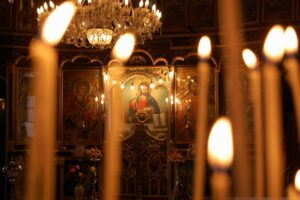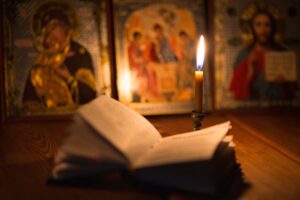On numerous occasions Jesus warned us about the many false prophets and false messiahs that were prevalent during His time on earth and in the times to follow:
“Beware of false prophets, who come to you in sheep’s clothing but inwardly are ravenous wolves” (St. Matthew 7:15); “False Christs and false prophets will arise and show signs and wonders, to lead astray, if possible, the elect” (St. Mark 13:22).
Basically what is meant by false prophet is anyone who claims to be “of God” when they are not: people whose aim it is to deceive true seekers as a means to gain glory, riches, power, and fame.
There were, and continue to be, many who identify themselves as men (and women) of God, but who have plied their ministry as a means to gain control over others physically, emotionally, sexually, and spiritually. These are the ones we tend to find out about, yet many often times only too late and after the fact. These are those who plundered their ministry’s finances, lived extravagantly on other’s wealth, performed immoral sexual acts with their parish members or member’s children, and who entered into their ministry with an ulterior or underlying motive.
The Old Testament provides a tradition about how one can tell a true prophet from a false one. A “three criteria test” was employed and we can probably still use this same method today.
1). A true prophet of God was generally somebody who does not bring good news. They are sent to express God’s anger and call for people to change their ways – often far outside their so called “comfort zone.” Although their message is not always well-received or pleasing to men’s ears, real prophets didn’t enjoy delivering God’s word either. In fact, many of them initially refused or tried to get out of this duty before they actually took up the mantle (read the story of Jonah).
2) Another test of a true prophet is that he is usually hurt by his calling. He suffers for being a prophet. He doesn’t profit or benefit from it; he doesn’t make lots of money from being a prophet. He doesn’t become rich and famous. Think of this the next time you read about those television evangelists with $5,000 suits and multimillion dollar homes with solid gold plumbing fixtures!
3). A third test of a true prophet is that he challenges us rather than makes us feel good about ourselves. A real prophet makes us go outside our comfort zone. The false prophet is somebody who simply tells us what we want to hear; that we’re great the way we are.
However, perhaps the best means of identifying a false prophet comes from the ominous word spoken by our Lord: “You will know them by their fruits. Are grapes gathered from thorns, or figs from thistles? So, every sound tree bears good fruit, but the bad tree bears evil fruit. A sound tree can not bear evil fruit, nor can a bad tree bear good fruit.” (St. Matthew 7:16-18)







